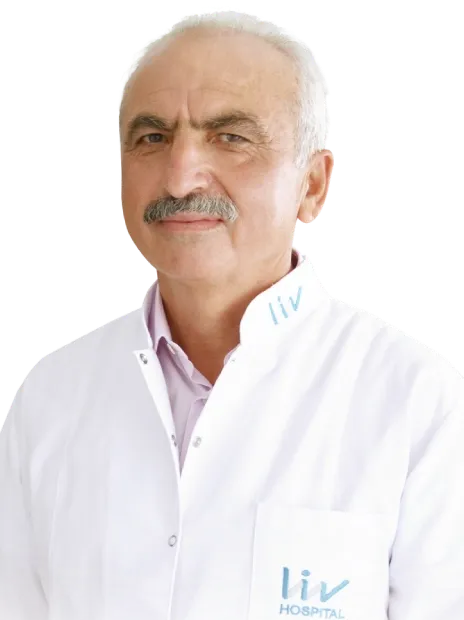
Discover 7 drugs for irregular heartbeat and quick guide to arrhythmia drugs.
Finding the right medicine for an irregular heartbeat can change your life. At Liv Hospital, we offer top-notch care for heart issues. Our care is based on the latest research and a focus on patient needs.
Medicines are key in handling heart arrhythmias. They stop serious problems like heart attacks and strokes. They also slow down heart disease. The main drugs are beta blockers, calcium channel blockers, and antiarrhythmics. These drugs help make the heart beat normally.
We will look at the 7 top medicines for irregular heartbeat. We’ll talk about how they work, their benefits, and how they help patients.
Key Takeaways
- Beta blockers are commonly used to treat heart arrhythmias.
- Calcium channel blockers help manage heart rhythm disorders.
- Antiarrhythmic agents are effective in restoring normal heart rhythm.
- Medications can prevent serious complications like heart attack and stroke.
- Liv Hospital provides expert care for international patients seeking advanced cardiac treatments.
Understanding Irregular Heartbeat and Treatment Approaches

It’s important to understand irregular heartbeat to find the right treatment. Arrhythmias, or irregular heartbeats, come in different forms. Each one needs a special way to manage it.
Common Types of Arrhythmias
Arrhythmias are divided into several types, like atrial fibrillation (AFib), ventricular tachycardia, and supraventricular tachycardia. Atrial fibrillation is a common type. It causes the heart to beat fast and irregularly. It’s important to manage it well to avoid serious problems like stroke.
Common Arrhythmias and Their Characteristics:
| Arrhythmia Type | Description | Common Symptoms |
| Atrial Fibrillation (AFib) | Rapid, irregular heart rhythm originating in the atria | Palpitations, shortness of breath, fatigue |
| Ventricular Tachycardia | Fast heart rate originating in the ventricles | Dizziness, fainting, cardiac arrest |
| Supraventricular Tachycardia | Rapid heart rate originating above the ventricles | Palpitations, lightheadedness, chest pain |
Rate Control vs Rhythm Control
There are two main ways to manage arrhythmias: rate control and rhythm control. Rate control aims to slow the heart rate to ease symptoms. Rhythm control tries to make the heart beat normally again.
A leading cardiology journal says, “Choosing between rate and rhythm control depends on the arrhythmia type, symptoms, and health.”
“Rate control is often preferred for patients with atrial fibrillation, as it can reduce symptoms and improve quality of life.”
Rate control uses medicines like beta blockers and calcium channel blockers to slow the heart. Rhythm control might use antiarrhythmic medicines or procedures like cardioversion to get the heart back to normal.
We’ll look at these treatments in more detail later. This will give a full view of how to manage irregular heartbeat.
How Drugs for Irregular Heartbeat Work in Your Body

It’s important to know how medications for irregular heartbeat work. They help manage arrhythmia by fixing the heart’s rhythm. This is done by targeting the heart’s electrical system.
These medications work in several ways. They mainly regulate electrical activity and control heart rate. They are divided into groups like sodium channel blockers, beta blockers, and potassium channel blockers.
Electrical Activity Regulation
Some drugs directly affect the heart’s electrical signals. Sodium channel blockers, like flecainide, slow down these signals. This helps keep the rhythm steady. Potassium channel blockers, such as sotalol, extend the repolarization phase. This can stop certain arrhythmias.
A study on these drugs shows their success. It says their effectiveness comes from changing the heart’s electrical properties.
“The choice of antiarrhythmic drug depends on the type of arrhythmia, the presence of structural heart disease, and the patient’s clinical status.”
Heart Rate Modulation
Other drugs aim to control the heart rate to manage arrhythmia. Beta blockers, for example, slow the heart rate. They do this by blocking epinephrine’s effects and slowing electrical conduction. Calcium channel blockers, like verapamil and diltiazem, also slow the heart rate. They do this by stopping calcium ions from entering the heart muscles and conduction tissues.
- Beta blockers are often used for rate control in atrial fibrillation.
- Calcium channel blockers are effective for certain supraventricular tachycardias.
Selecting the Right Medication for Your Arrhythmia
Choosing the right medication is complex. It depends on the arrhythmia type, heart disease, and overall health. Healthcare professionals carefully evaluate and monitor this process.
Healthcare providers use their knowledge of medication effects to make good choices. They aim to find a medication that works well without causing too many side effects.
Beta Blockers: The Foundation of Arrhythmia Treatment
Beta blockers are key in treating arrhythmias. They help control heart rhythm and lessen the heart’s effort. By blocking adrenaline’s effect, they slow the heart rate and cut down on heart output. This is vital for managing symptoms and improving life for those with arrhythmias.
Different beta blockers offer unique benefits. Let’s look at some commonly used ones for arrhythmias.
Metoprolol: Most Commonly Prescribed Beta Blocker
Metoprolol is a top choice for managing arrhythmias. It’s great at controlling heart rate and easing symptoms. Metoprolol slows the heart rate and weakens heart contractions, making it perfect for many patients.
Atenolol: Benefits for Specific Arrhythmias
Atenolol is great for certain arrhythmias. It’s known for controlling heart rate well. Atenolol’s design allows for daily dosing, which helps patients stick to their treatment.
Bisoprolol: Cardio-Selective Advantages
Bisoprolol is special because it targets the heart more than other beta blockers. This reduces side effects. It’s a good choice for long-term use. Bisoprolol’s focus on the heart is great for patients with specific health issues.
Beta blockers like metoprolol, atenolol, and bisoprolol are essential for arrhythmia treatment. They help control heart rhythm and ease symptoms, making them vital for managing this condition.
Calcium Channel Blockers for Heart Rhythm Control
Calcium channel blockers are key in managing heart rhythm issues. They stop calcium from entering the heart and blood vessels. This action lowers the heart rate and its output.
These drugs control the heart’s electrical activity. They help manage arrhythmias, improving symptoms and life quality for patients.
Verapamil: Powerful Rate Control Option
Verapamil is a top choice for controlling heart rate in arrhythmias. It’s great for treating supraventricular tachycardia.
Verapamil slows the heart rate well. It’s perfect for patients needing rate control without harming heart output.
Diltiazem: Extended-Release Benefits
Diltiazem is a calcium channel blocker with extended-release benefits. It’s taken once a day, making it easier for patients to stick to their treatment.
Diltiazem’s extended-release form keeps its effect steady. This reduces the chance of side effects from sudden spikes in blood levels.
When Calcium Channel Blockers Are the Preferred Choice
Calcium channel blockers are often the first choice for certain arrhythmias. This is true for patients who can’t take beta-blockers or when beta-blockers don’t work.
The choice between verapamil and diltiazem depends on the patient’s specific needs. This includes the type of arrhythmia, other health conditions, and possible drug interactions.
| Calcium Channel Blocker | Primary Use | Notable Benefits |
| Verapamil | Supraventricular tachycardia, rate control | Effective in slowing heart rate, versatile dosing |
| Diltiazem | Atrial fibrillation, flutter, rate control | Extended-release formulation, once-daily dosing |
Amiodarone: Potent Antiarrhythmic for Complex Cases
Amiodarone is a strong antiarrhythmic drug for complex heart rhythm problems. It works well for many arrhythmias, even when other treatments don’t help.
Mechanism of Action and Effectiveness
Amiodarone’s power comes from its complex action on the heart. It affects many ion channels. This helps it fight a wide range of arrhythmias.
- Prolonging the action duration
- Inhibiting sodium channels at rapid pacing rates
- Blocking beta-adrenergic receptors
- Reducing calcium influx into cardiac cells
Its unique way of working makes amiodarone great for many arrhythmias. It’s very good at keeping the heart in a normal rhythm, even in atrial fibrillation or flutter.
Long-Term Management Considerations
Amiodarone is very effective, but long-term use can have side effects. Common problems include:
- Thyroid issues (both low and high)
- Pulmonary toxicity
- Hepatic problems
- Skin sensitivity and discoloration
To avoid these issues, we must watch patients closely. We adjust dosages and quickly treat any side effects.
Monitoring Requirements
It’s important to regularly check on patients taking amiodarone. This includes:
- Thyroid function tests at the start and regularly
- Chest X-rays and lung function tests for lung problems
- Tests for liver issues
- Heart rhythm checks to watch the QT interval
By weighing the benefits and risks of amiodarone, we can help patients with complex arrhythmias get better.
Sotalol: Dual-Action Therapy for Ventricular Arrhythmias
Sotalol is a treatment for ventricular arrhythmias. It works by blocking beta receptors and controlling heart rhythm. This makes it a good choice for some irregular heartbeats.
Combined Beta-Blocking and Antiarrhythmic Effects
Sotalol has two main actions. It blocks beta receptors to slow the heart rate and reduce force of contraction. At the same time, it regulates the heart’s electrical activity to prevent irregular rhythms.
This dual action is great for treating ventricular arrhythmias. It helps slow the heart and fix irregular rhythms. This is important because these arrhythmias can be dangerous.
Ideal Candidates for Sotalol Therapy
Sotalol is best for patients with ventricular tachycardia or ventricular fibrillation. It’s for those who haven’t gotten better with other treatments or can’t take other medicines.
- Patients with a history of ventricular arrhythmias
- Those who need to control both heart rate and rhythm
- Individuals with certain heart diseases
Choosing the right patient is key. Sotalol can have serious side effects and interact with other medicines. We need to check each patient’s health and heart function to see if sotalol is right for them.
Safety Monitoring Protocol
Because sotalol can cause proarrhythmia, we must watch patients closely. Regular ECGs help us see how well the medicine is working and if it’s causing any heart problems.
- Starting sotalol in the hospital is often a good idea to watch for heart rhythm problems.
- ECGs and blood tests are needed regularly.
- Patients should know the signs of worsening arrhythmias.
By watching patients on sotalol closely, we can make sure it works well. This helps manage ventricular arrhythmias safely.
Flecainide: Targeted Sodium Channel Blockade
Flecainide is a medication known for its success in treating supraventricular arrhythmias. It works by blocking sodium channels in the heart. This helps control abnormal heart rhythms.
Effectiveness for Supraventricular Arrhythmias
Flecainide is great for treating supraventricular arrhythmias like atrial fibrillation and paroxysmal supraventricular tachycardia. It can change irregular heart rhythms back to normal. This makes it a good choice for those with these conditions.
Its success comes from blocking sodium channels. This makes the heart muscle less excitable. It stops arrhythmias from starting or continuing.
- Conversion to sinus rhythm: Flecainide can turn atrial fibrillation into a normal rhythm.
- Prevention of arrhythmia recurrence: Long-term use can stop supraventricular arrhythmias from coming back.
- Rate control: It can also control the heart rate in atrial fibrillation.
Contraindications and Cautions
Flecainide is effective but has its limits. It’s not for everyone, like those with heart disease or past heart attacks. It’s also not good for people with heart failure or ischemia.
Those taking flecainide need to watch for proarrhythmia. This is when the drug makes arrhythmias worse. Regular heart tests are key to see how the drug affects the heart.
Proper Dosing and Administration
The right dose of flecainide varies by person. It usually starts at 50 to 100 mg twice a day. The dose can be adjusted as needed.
Flecainide comes in tablets and is taken by mouth. It works well with or without food. But, it’s important to take it at the same time every day to keep the levels right.
- Initial dosing: Start with 50 mg twice daily.
- Dose adjustment: Increase by 50 mg twice daily at intervals of 4 days until efficacy is achieved or side effects occur.
- Maximum dose: Typically not to exceed 300 mg daily, though this can vary based on patient factors.
Digoxin: Traditional Option for Atrial Fibrillation
Digoxin has been a key treatment for atrial fibrillation for centuries. It helps control heart rate. Its long history and ongoing use make it vital for patients with this condition.
Historical Use and Modern Applications
Digoxin comes from the foxglove plant and has treated heart issues for centuries. It was first used in the 18th century. Today, it’s a key drug in cardiology, helping control heart rate in atrial fibrillation.
We often use digoxin with other drugs to manage heart rate better. This approach helps patients feel better and live better lives.
Mechanism of Action
Digoxin works by affecting the sodium-potassium ATPase pump in heart cells. This increases calcium inside the cells, boosting heart muscle strength. It also helps slow down the heart rate, which is great for atrial fibrillation.
The mechanism of action of digoxin is complex. It affects the heart in direct and indirect ways. Knowing how it works is key to using it right in treatment.
Narrow Therapeutic Window Considerations
Digoxin’s narrow therapeutic window is a big challenge. The difference between a safe dose and a toxic one is small. Kidney function, electrolyte levels, and other drugs can affect digoxin levels and toxicity risk.
So, we must watch digoxin levels, kidney function, and electrolytes closely. This ensures treatment is safe and effective. We also need to dose digoxin carefully and watch for signs of toxicity.
Side Effects and Risks of Arrhythmia Medications
It’s important to know the side effects of arrhythmia medications for safe treatment. We’ll look at the different medications for irregular heartbeats. We’ll also talk about their risks and how they affect patients.
Common Side Effects by Medication Class
Different medications have different side effects. Beta blockers can make you feel tired, dizzy, and have cold hands or feet. They affect your heart rate and blood pressure.
Calcium channel blockers might cause swelling, constipation, and headaches. Knowing these side effects helps manage treatment better.
Medications like amiodarone can have serious side effects. These include thyroid problems, lung issues, and liver damage. Regular checks are key for these patients.
Serious Adverse Effects to Watch For
Some medications can cause serious problems. Proarrhythmic effects are a big worry. They can make the arrhythmia worse. Patients on these drugs need close monitoring.
Other serious issues include QT prolongation. This can lead to a dangerous arrhythmia called Torsades de Pointes. Drugs like sotalol and quinidine can cause this. So, careful patient selection and monitoring are needed.
Drug Interactions and Contraindications
Arrhythmia medications can interact with other drugs. This can lead to bad effects or make the medication less effective. For example, amiodarone can interact with many drugs, including blood thinners and statins. It’s important for doctors to check all medications a patient is taking.
Some medications should not be used in certain conditions. For example, beta blockers are not safe for people with asthma or certain heart problems. Knowing these contraindications helps doctors prescribe safely.
By understanding the side effects, serious issues, and drug interactions of arrhythmia medications, doctors can make better treatment plans. This improves patient outcomes.
Lifestyle Modifications to Support Medication Effectiveness
Medications are key in managing irregular heartbeat. But, making healthy lifestyle choices can boost their power. By adding good habits to your day, you can make your treatment work better and keep your heart healthy.
Dietary Considerations for Arrhythmia Patients
Eating right is vital for heart health and better medication results. Focus on foods like fruits, veggies, whole grains, lean meats, and healthy fats. Avoid too much caffeine, alcohol, and salty foods as they can harm your heart rhythm.
Here are some diet tips for arrhythmia patients:
- Eat more omega-3s from fish, nuts, and seeds
- Choose foods high in potassium like bananas and avocados
- Drink lots of water to stay hydrated
- Avoid big meals that can strain your heart
| Food Group | Recommended Foods | Foods to Limit |
| Fruits and Vegetables | Berries, leafy greens, citrus fruits | Fruits canned in syrup, vegetables cooked in oil |
| Proteins | Lean meats, fish, eggs, legumes | Processed meats, fried foods |
| Grains | Whole grains, oats, brown rice | Refined grains, sugary cereals |
Exercise Guidelines When Taking Heart Rhythm Medications
Regular exercise is key for heart health and better medication results. But, it’s important to follow safe exercise guidelines. Always talk to your doctor about the best workout plan for you.
Here are some exercise tips for arrhythmia patients:
- Do moderate activities like walking, cycling, or swimming
- Try to exercise for at least 150 minutes a week
- Add strength training to get stronger
- Stay away from intense activities that might trigger arrhythmias
Stress Management and Sleep Optimization
Managing stress and getting enough sleep are key to managing arrhythmia. Stress and lack of sleep can make arrhythmias worse and reduce medication effectiveness. Try different ways to relax and focus on getting good sleep.
Here are some stress management tips for arrhythmia patients:
- Try mindfulness meditation or deep breathing
- Do yoga or tai chi
- Find activities that make you happy and relaxed
- See a mental health professional if you need help
By making these lifestyle changes, you can make your arrhythmia treatment more effective and keep your heart healthy.
Conclusion: Working With Your Doctor to Find the Right Treatment
Managing arrhythmia well needs teamwork between you and your doctor. By working together, you can find a treatment plan that fits your needs.
We talked about different medicines for irregular heartbeats. These include beta blockers, calcium channel blockers, and antiarrhythmic drugs. Each has its own good points and possible side effects. Your doctor will guide you through these choices and keep an eye on how you’re doing.
Telling your doctor about your symptoms, health history, and worries is key. This helps them make the best decisions for you. They can also change your treatment if needed.
Working with your doctor and sticking to your treatment plan can greatly improve your life. Finding the right treatment takes time, patience, and teamwork.
FAQ
What are the most common types of arrhythmias treated with medication?
Common arrhythmias treated with meds include atrial fibrillation, ventricular tachycardia, and supraventricular tachycardia. These irregular heart rhythms can be managed with different medications.
What is the difference between rate control and rhythm control strategies for arrhythmias?
Rate control aims to slow the heart rate. Rhythm control tries to fix the heart rhythm. The choice depends on the arrhythmia type, symptoms, and health.
How do beta blockers work in treating arrhythmias?
Beta blockers slow the heart rate and reduce its strength. They block epinephrine and norepinephrine’s heart effects. This helps control heart rate and electrical activity.
What are the benefits of using calcium channel blockers for heart rhythm control?
Calcium channel blockers, like verapamil and diltiazem, control heart rate and symptoms in some arrhythmias. They slow the heart rate and reduce contractions by blocking calcium channels.
What are the possible side effects of antiarrhythmic medications?
Antiarrhythmic meds can cause dizziness, fatigue, and stomach issues. Serious side effects like worsening arrhythmia or organ damage can happen, depending on the drug and patient.
How can lifestyle modifications support the effectiveness of arrhythmia medications?
Healthy lifestyle choices like diet, exercise, stress management, and sleep help meds work better. A good lifestyle also lowers complication risks and boosts well-being.
What is the role of amiodarone in treating complex arrhythmias?
Amiodarone treats complex and dangerous arrhythmias. It modulates heart ion channels to restore rhythm. But, it needs careful monitoring due to side effects.
How does sotalol work in treating ventricular arrhythmias?
Sotalol slows the heart rate and extends the QT interval. It’s used for life-threatening ventricular arrhythmias. Its use requires close monitoring.
What are the contraindications for flecainide in treating supraventricular arrhythmias?
Flecainide is not for patients with heart diseases like coronary artery disease or heart failure. It’s also not for those with kidney or liver problems.
How does digoxin work in treating atrial fibrillation?
Digoxin increases heart contraction strength and slows rate. It’s used to control heart rate in atrial fibrillation, mainly in heart failure patients.
What are the considerations for narrow therapeutic window when using digoxin?
Digoxin has a narrow therapeutic window. This means the dose difference between safe and toxic is small. Patients need regular blood level checks and monitoring of kidney and electrolyte function to avoid toxicity.
How can drug interactions affect the safety of arrhythmia medications?
Drug interactions can change how safe and effective arrhythmia meds are. Some meds can increase side effects or reduce effectiveness. Patients should tell their doctors about all meds, supplements, and herbal products they take.
References
National Center for Biotechnology Information. (2025). 7 Best Medications for Irregular Heartbeat Quick Guide. Retrieved from https://www.ncbi.nlm.nih.gov/books/NBK482322/


































